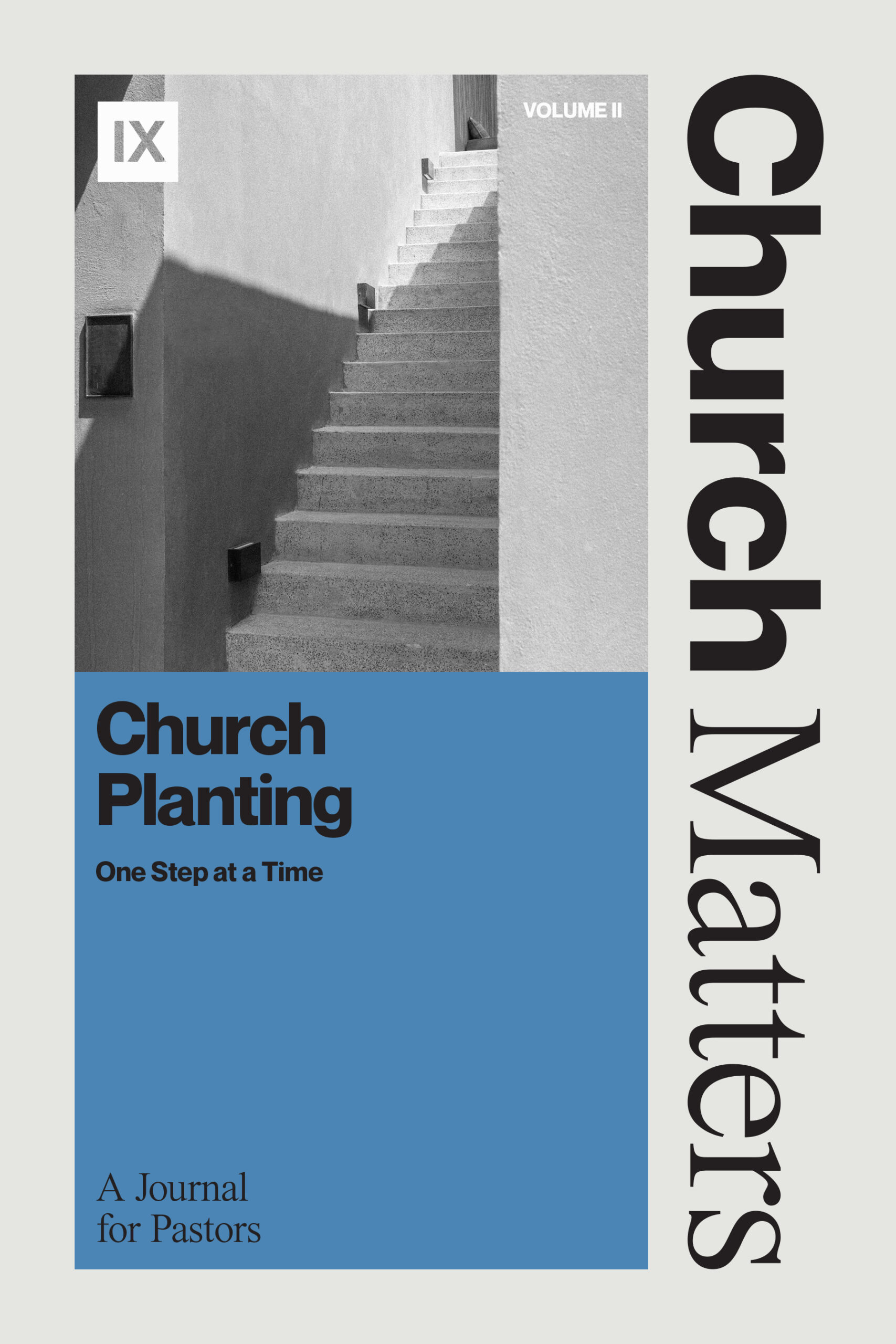Why Bad Polity Hurt My Church Plant
Planting a church in the 1980s under the aegis of the Church Growth Movement (CGM) involved adherence to its strategists’ axioms and principles. Ringing in the planter’s ears was Peter Wagner’s mantra: “The most effective way to reach people is by planting new churches.” The movement’s planters followed an agenda for rapid growth and multiplication.
Somewhere in the shuffle of axioms and principles, healthy ecclesiology and biblical church polity got lost. Marketing principles and sociological strategies left the patient work of shepherding a congregation toward spiritual health in the dust. Pragmatism took over.
Sitting under the CGM’s gurus convinced me their formula for ministry success was my calling. I implemented several strategies in the church I pastored before launching out to plant in a metropolitan area. But something kept nagging me. Is this biblical? For the moment, pragmatism overrode a biblical hermeneutic. I would plant a church and watch it grow.
And it did. But not in a healthy way.
I saw the numbers and “decadal growth rate” as foreshadowing my future as a church growth consultant. One problem stood in the way: the Bible. Was what I led a biblical church? Were the people joining at a rapid-fire rate biblical Christians? Closer to the heart, was I a biblical shepherd?
My failure at leading the church toward healthy polity can’t be blamed on the CGM. I failed to investigate Scripture’s framework for governing and leading a healthy church. Pastors are responsible to know the Word. I depended on strategies when I should have slowed down long enough to recognize the obvious. If the church is built on pragmatic methodologies, not on Word and Spirit, then it won’t stand when the winds and waves pound away.
PRESUMPTIVE POLITY
While church history shows careful attention by Baptists to church polity,[1] the past few generations of pastors, for the most part, have ignored it. I knew the term and understood it as part of ecclesiology but gave it scant attention. When I planted, I had a presumptive polity. That is, rather than something studied and worked out biblically, I presumed that by meeting on Sundays and Wednesdays, we would just figure out how we were to function together. With the excitement of a new church, it worked temporarily but not for long, and a lack of biblical polity soon exposed weaknesses in our church and my shepherding.
While pastoring in the late 70s before I planted, I witnessed poor polity via unqualified deacons, overly cumbersome committees, power groups, knock-down-drag-out business meetings, and ecclesiological inertia. I overreacted. I presumed that planting a church would free me from these problems. It didn’t take me long for the weightiness of ministry and church life to open my eyes to see the desperate need for biblical polity.
LACKING HEALTHY POLITY
If Jonathan Leeman is right that “the trunk and branches of church government [polity] grow out of the seed of the gospel,” then the polity-impoverished path I had taken hindered the church’s gospel growth and development.[2] Soon, our ecclesial ship—switching metaphors—began taking on water. Five distinct problems arose.
1. Because our church lacked healthy polity, I bore the weight of the church on my shoulders instead of sharing it with the shoulders of a plurality of elders.
Discipling, decisions, counseling, conflicts, worship leadership, details for gatherings, and disciplinary situations—all of it depended on me. The wisdom of plurality in appointing “elders in every city” came to light for me (Titus 1:5).
2. Because our church lacked healthy polity, we had no framework for formally disciplining members.
We had membership, but without a church covenant and stated expectations, we had no recourse when members fell into unrepentant sin. Matthew 18:15–20 seemed like wishful thinking. Sadly, I remember sitting in the living room of a member whom we feared to have fallen into grievous sin with no process to deal with him. It ended terribly. Faithful polity would have addressed this situation for the sake of that man, his family, and the church.
3. Because our church lacked healthy polity, we had no structure for healthy church membership.
The frequent “one another” passages mean little without structure to focus them. It’s not that we lacked people joining the church. Instead, we had no structure for examining and holding new members accountable. The front and back doors were wide open. Low membership expectations resulted in disunity and carelessness. If good polity grows out of a clear gospel foundation, then it produces the fruit of the flesh, not of the gospel, when it’s lacking.
4. Because our church lacked healthy polity, participation in the body was limited.
We made some decisions together. But we needed a congregational structure for meaningful membership, where members engage one another with concern for the church’s teaching, direction, and spiritual life.
5. Because our church lacked healthy polity, there was a diminished motivation to raise up new elders.
The pathway to train elders differs from simply mentoring for spiritual growth. Intentionality in training men to shepherd the flock reorients the approach to mentoring. Healthy polity that includes plural elder leadership motivates the pastor to keep training qualified men to serve the flock.
FIVE YEARS LATER
We sort of had polity in the church plant. Unfortunately, the polity was between my ears. I attempted to be as biblical as I understood at the time within my cultural and denominational traditions. Even so, nothing was formalized. No documents stated who we were or how we functioned. Nothing spelled out how we led or made decisions. No manual explained qualifications for elders or deacons and how both offices worked out in church life. A between-the-ears polity will not work for long.
Around our church’s five-year mark, we implemented a well-researched, thoughtful polity. It included a doctrinal statement, a church covenant, membership requirements, a process for church discipline, qualifications and selection process for elders and deacons, and a plan for how officers and the congregation worked together toward church maturity and unity.
But polity on paper, duly approved by the congregation, also meant rolling it out after five years of squishy, between-the-ears polity. We had ups and downs. We struggled out of the gate to get the membership process in place. We staggered through the first group of elders and deacons, trying to learn how to function together. The five-year delay in forming a biblical polity almost wrecked us. But in the Lord’s kindness, the body began to see the beauty of biblical polity.
FRUIT OF HEALTHY POLITY
Finally, healthy polity’s fruit, worked out of the gospel, began to sprout. Here’s what we learned:
- Polity lays the groundwork for healthy implementation of gospel proclamation.
- Polity evidences Christ’s love for order in his body.
- Polity frames the divine design for healthy church life.
- Polity takes the guesswork out of how the church functions.
- Polity protects the church from the misuse of authority.
- Polity promotes healthy membership.
- Polity paves the way for careful shepherding.
The lesson for church planters is labor on developing polity before starting a church. It may need tweaking at points. You may need to clean it up once the dust of planting settles. But if you hold to it carefully as an expression of gospel-centered membership for a local church, it will bear fruit.
* * * * *
[1] See Mark Dever, ed., Polity.
[2] Jonathan Leeman, Don’t Fire Your Church Members, 15
Related Multimedia

Preaching in a Church Planting Context
By Clint Darst









